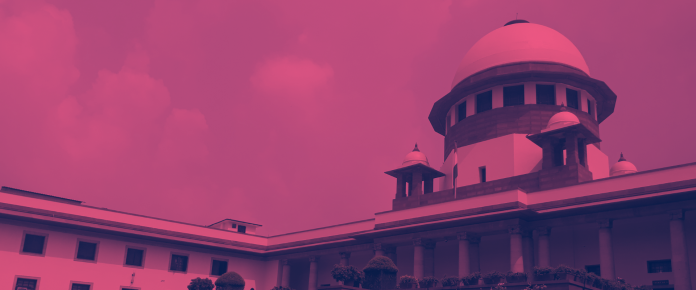- As you are aware, the National Judicial Appointments Commission (NJAC) Act was passed by both houses of the Parliament in 2014 and was struck down as unconstitutional by the Supreme Court in 2015. The NJAC Act was the brainchild of the then law minister Ravi Shankar Prasad of the BJP-led NDA meant to usher in much-needed accountability, transparency, and acceptability for the higher judicial appointments. However, the Supreme Court had a diametrically opposite viewpoint leading to the quashing of the Act. Since then, the Union Government and the successive law ministers’ have expressed a not-so-subtle opinion at different forums about introducing reforms in the higher judicial appointments. Specifically, to relook into the NJAC.

PC: B.V. Acharya
- Of course, apart from the government machinery, several civil society members, profound thinkers, well-known NGOs, and reputed institutions have pitched in for the NJAC to come to fruition. But the Supreme Court has been steadfast in not pressing ahead with the issue that keeps cropping up sporadically. Even for any layman not well-versed in judicial functioning, the judges appointing judges will always appear to be intriguing/incomprehensible invariably raising questions about the impartiality, unbiased selection, and unimpeachable propriety surrounding such appointments.
- Nonetheless, the Apex Court has assiduously held its ground on the subject by not encouraging beyond giving a patient hearing. Note that the incumbent Union law minister Kiren Rijiiju has not lost any opportunity in touching upon the subject of judicial appointments vis-à-vis the collegium system and urging the higher judiciary to reconsider/relook at the present practice. The Union law minister has recently remarked that the government won’t stay silent forever on the Supreme Court’s collegium system of appointing judges. Undoubtedly, the backers of the collegium system are apprehensive of government interference in judicial appointments, which can potentially undermine the independence of the judiciary.

PC: VRP
- Of course, they cite executive overreach in judicial appointments in the 1970s and 1980s. Those misgivings led to the collegium system being continued to date. Indeed, a cloistered judiciary also raises suspicion of nepotism, which could raise questions about the judicial system’s credibility down the road. As Rijiiju rightly said, it won’t be unrealistic to imagine that politics plays a role in appointments decided behind the closed doors of the collegium. Precisely why India needs something like NJAC which aims to be a middle path to address the apprehensions of judges as well as meet standards of transparency and accountability.
- The composition of the old NJAC proposal had six members including the CJI, two senior-most SC judges, the Union law minister, and two eminent citizens nominated by a panel comprising the PM, CJI, and the leader of the opposition. Note that this is a good mix to nominate judges, and rules can be tweaked to improve the system further. As the final hope for those seeking justice, the judiciary must be beyond all suspicion. Unfortunately, the collegium system stands in the way. Hopefully, the higher judiciary debates the matter with an open mind and duly considers giving serious thought about a reworked/retweaked NJAC in the near future.






